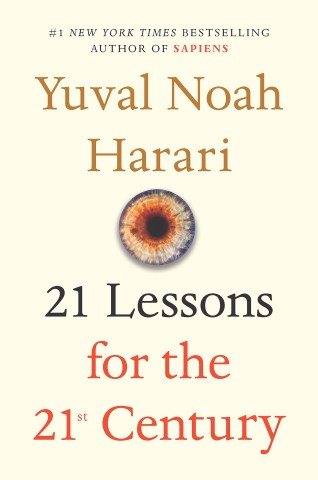In 2005 Uma Kothari published an edited book, "A Radical History of Development Studies: Individuals, Institutions and Ideologies". The ten chapters of the book are clustered in two broad areas (individuals and ideas as well as ideas and ideologies). That two decades have past is quite evident in this text, what was pushing the edge as "radical" in development studies in the early 2000s has change quite a substantially in 2024. The book has many of the "big names" of development studies, who offer historical and reflective chapters. As with many edited books, the shelf life is shorter than a monograph and I am not sure - excepting historical context or specific interest in the authors - there is a strong reason to pick this up in 2024. Nonetheless, it is worth recognizing these steps in the transformation of the field of study, of which Kothari has made several key contributions. It is also a useful marker of reflection regarding the discourses.
In 2023 I reviewed a series of short books by Ohio University Press. Looking to expand beyond the well known biographies, I came across "Lomathinda: Rose Chibambo Speaks" (2019), by which is an interview-style book. The text chronologically outlines the personal and political struggles of one of Malawi's leaders. A few notes:
"That's how politics of women started. We never used to look forward to any compensation from anybody or from a reward from anybody. Our aim was to see that our country is free... And we carried on until the whole country was convinced, all the women had joined in every branch in the country, had joined politics. They were joining the main body, at the same time they were now organizing themselves. We had no transport but whenever there is a main body and the delegates are coming from areas, they would see that the women are doing this. It was encouraging. That's how the women's league started." (p. 92-93)
"What pains me more now is that we have taken politics as something whereby one wants to get rich, not as something with which we want to help the needy or the poor people, to bring them to understand things, to understand their own life, how they can live. But not in the way things are moving... I fought in order for things to be better. And when I see things going wrong now, it pains me, because I sometimes feel, was it worth fighting for? Sleeping on the floor in the prisons, for the sake of our country to be free." (p. 201)
"So it's up to you young people: this is the country, we got it for you. I'm speaking, it's Rose here talking. I'm still around I know what this nation was, and where we have brought it from. It is really for you either you destroy it or you save it." (p. 202)
In search of a book about Egyptian political leaders, I came across very little. An earlier post covered a book by the spouse of Gamal Abdel Nasser. Amazon put me on to the book "Gamal Abdel Nasser and Anwar Sadat: The Presidents Who Shaped Modern Egypt" (2014) by Charles River Editors. Disappointing. Partly brief biography and partly brief Wikipedia, this is not what you are looking for. If anyone has suggestions, please send them in.
Best-seller Yuval Noah Harari seemed to be riding the wave of his book selling popularity with his "21 Lessons for the 21st Century" (2018), as this book largely pulls together previously published material for the book market. Granted I am picking this book up in 2023 and much has changed in the years since publication, I did not find it particularly insightful. It often draws on broad generalizations (maybe by necessity given the global nature), resulting in inaccuracies. The book is weaved with various forms of determinisms – genetic, biological, socio-cultural, environmental. Wallerstein would almost certainly have pointed to the consistent metanarratives, via inclusions and exclusions, each with their own biases, assumptions and blinders, while the author argues he does not have a metanarrative (or is skeptical of them). A few notes:
"In a world deluged by irrelevant information, clarity is power. In theory, anybody can join the debate about the future of humanity, but it is so hard to maintain a clear vision. We might not even notice that a debate is going on, or what the key questions are. Most of us can't afford the luxury of investigating, because we have more pressing things to do: we have to go to work, take care of the kids, or look after elderly parents. Unfortunately, history does not give discounts. If the future of humanity is decided in your absence, because you are too busy feeding and clothing your kids, you and they will not be exempt from the consequences. This is unfair; but who said history was fair? As a historian, I cannot give people food or clothes – but I can try to offer some clarity, thereby helping to level the global playing field. If this empowers even a handful of additional people to join the debate about the future of our species, I have done my job." (p. xiiv)
"Human stupidity is one of the most important forces in history, yet we often tend to discount it. Politicians, generals, and scholars treat the world as a great chess game, where every move follows careful rational calculation. This is correct up to a point. Few leaders in history have been mad in the narrow sense of the word, moving pawns and knights at random. Hideki Tojo, Saddam Hussein, and Kim Jong-Il had rational reasons for every move they played. The problem is that the world is far more complicated than a chessboard, and human rationality is not up to the task of really understanding it. For that reason even rational leaders frequently end up doing very stupid things." (p. 184)
"If you really want truth, you need to escape the black hole of power and allow yourself to waste a lot of time wandering here and there on the periphery. Revolutionary knowledge rarely makes it to the center, because the center is built on existing knowledge. The guardians of the old order usually determine who gets to reach the centers of power, and they tend to filter out the carriers of disturbing, unconventional ideas. Of course, they filter out an incredible amount of rubbish too. Not being invited to the Davos World Economic Forum is hardly a guarantee of wisdom. That's why you need to waste so much time in the periphery: while it might contain some brilliant revolutionary insights, it is mostly full of uninformed guesses, debunked models, superstitious dogmas, and ridiculous conspiracy theories." (p. 228)




